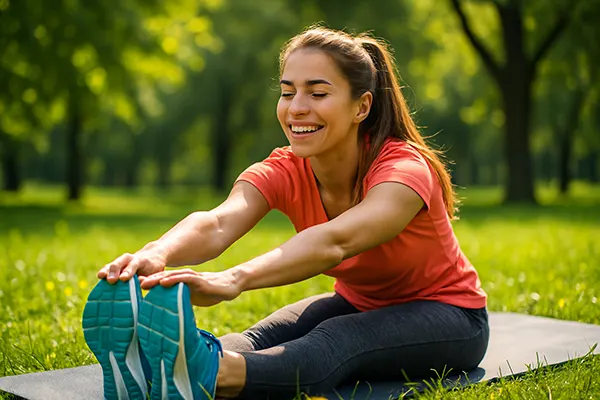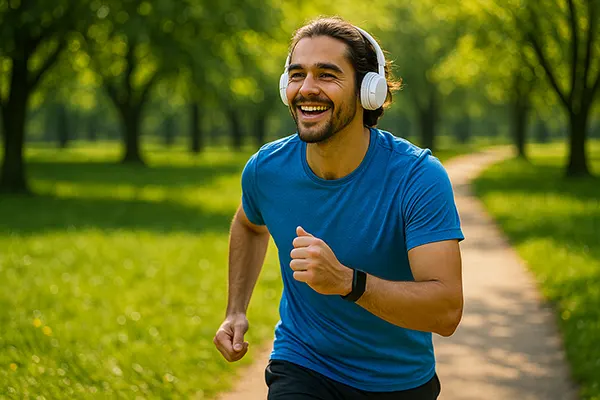
Anti-Stress through Movement: How Physical Activity Helps to Cope with Stress
In today’s fast-paced world, stress has become an inevitable part of life. Whether caused by work pressure, personal challenges, or environmental factors, stress can take a toll on both mental and physical health. Fortunately, one of the most effective and accessible ways to combat stress is through physical activity. Engaging in regular movement not only enhances physical fitness but also significantly improves emotional well-being.
The Science Behind Movement and Stress Reduction
Physical activity plays a crucial role in regulating the body’s stress response. When a person engages in exercise, the brain releases endorphins, commonly known as “feel-good” hormones. These natural mood elevators help reduce feelings of anxiety and enhance overall mental clarity. Additionally, physical activity reduces the levels of stress hormones such as cortisol, which in high amounts can lead to chronic stress and other health issues.
Studies have shown that even moderate exercise, such as brisk walking or light jogging, can significantly lower stress levels. The rhythmic nature of these activities promotes relaxation and allows the mind to focus on the present moment rather than dwelling on stressors. This mindful movement not only calms the body but also provides a sense of control and accomplishment.
Furthermore, incorporating movement into daily routines helps to break the cycle of sedentary habits that can exacerbate stress. Whether it’s yoga, cycling, or simple stretching exercises, regular physical activity fosters resilience against the physiological impacts of stress and improves mood stability.
Practical Ways to Incorporate Movement into Daily Life
Starting with small, manageable activities can make a significant difference in stress management. Walking during lunch breaks, practicing short yoga sessions in the morning, or even taking the stairs instead of the lift can collectively reduce stress. The key is consistency rather than intensity, as even minor changes can lead to lasting benefits.
Another effective strategy is to choose activities that are enjoyable and suit individual preferences. This could include dancing, gardening, or group sports. When physical activity is perceived as pleasurable, it becomes a sustainable part of daily life rather than a chore, further contributing to its stress-reducing effects.
Social support also plays a vital role. Engaging in group exercises or partnering with friends for workouts not only encourages consistency but also creates a sense of community, which is known to buffer against stress.
Physical Activity as a Coping Mechanism
Physical movement acts as a natural coping mechanism by redirecting attention away from stressful thoughts. Activities such as jogging, swimming, or hiking can serve as healthy outlets for releasing pent-up energy and frustrations. This cathartic effect is particularly beneficial for those dealing with work-related stress or personal challenges.
Incorporating structured routines, like joining fitness classes or setting personal fitness goals, helps in maintaining motivation. Establishing a regular pattern of movement fosters discipline and allows the brain to associate exercise with positive outcomes, such as reduced tension and increased energy levels.
Furthermore, adopting movement practices tailored to personal needs can enhance emotional resilience. For instance, mindful practices like Tai Chi or Pilates not only strengthen the body but also calm the mind, promoting a holistic approach to stress management.
The Role of Outdoor Activities
Engaging in outdoor physical activities has unique advantages for stress relief. Natural environments, such as parks or beaches, provide a peaceful setting that naturally lowers stress levels. Activities like hiking, cycling, or beach running combine the benefits of movement with the calming effects of nature.
Research suggests that exposure to green spaces enhances mood and reduces the likelihood of anxiety disorders. Therefore, choosing outdoor workouts can amplify the positive effects of physical exercise on mental well-being.
Incorporating regular outdoor sessions, even if brief, can revitalize the body and mind, offering a refreshing break from routine indoor environments. Whether it’s a morning jog in the park or an evening walk along the waterfront, outdoor activity is a simple yet powerful tool for stress management.

Mindful Movement: Integrating Physical and Mental Health
Mindful movement practices focus on aligning physical activities with conscious breathing and mental awareness. Techniques like yoga, tai chi, and meditation in motion cultivate a harmonious connection between the body and mind, fostering a profound sense of calm and balance.
Practicing mindfulness during movement enhances self-awareness and helps regulate emotional responses. This conscious approach to physical activity reduces the impact of stress by promoting a relaxed state of being, which counteracts the body’s fight-or-flight response.
Mindful practices encourage a deeper appreciation of the present moment, allowing individuals to step back from their worries and focus on their physical sensations. This shift in perspective can significantly alleviate stress and build mental fortitude.
Finding Balance Through Routine
Establishing a balanced routine that incorporates both high-energy and low-impact activities can optimize stress management. Alternating between vigorous exercises like aerobics and calming practices like yoga ensures comprehensive physical and mental benefits.
Consistency is crucial. Setting achievable fitness goals and gradually increasing intensity helps maintain motivation while preventing burnout. Regularity, rather than sporadic intense workouts, promotes sustained well-being.
Ultimately, integrating mindful movement into daily life not only reduces stress but also fosters a proactive approach to mental health. By embracing a balanced and consistent routine, individuals can effectively manage stress and enhance their overall quality of life.
